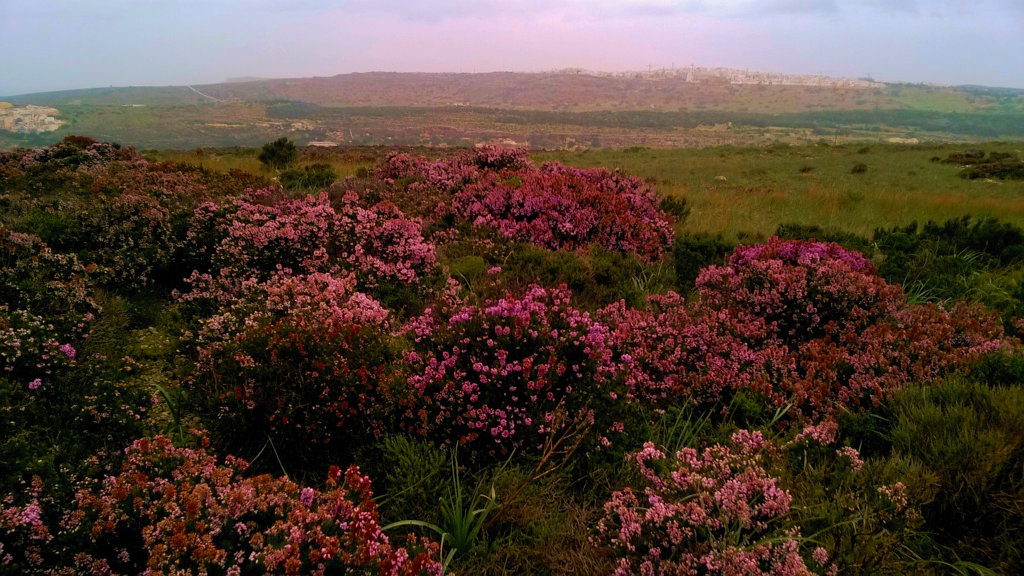
A coalition for protecting the remaining open spaces should include all those groups that have an interest in maintaining it: eNGOs, local councils, fireworks enthusiasts, hunters, trappers, and ERA.
by Alan Deidun
[dropcap]S[/dropcap]ave for a dissenting minority who seem bent on perpetually mistaking the wood for the trees, the vast majority embrace the view that the situation in environmental spheres is indeed verging on the desperate.
It is clear to see, from a proliferation of sprawling fuel stations within Outside Development Zone areas to an unremitting and unabashed approval of other small-scale ODZ development ranging from ‘tool sheds’ to fully-fledged dwellings; from applications for fast-food parlours in ODZ land to a relentless expansion of the road network (to the detriment of mature roadside trees); from the expansion of industrial estates in Bulebel and in Xewkija to the desecration of sites of ecological importance (Tal-Wej in Mosta, for instance) and even to grand plans for land reclamation at sea.
To add insult to injury, we are still reeling from the impacts of the ‘scheme rationalisation’ exercise of 2006, where large tracts of previously ODZ land are being ushered into the development zone, with Attard being the latest to face such a gauntlet, as the above photo amply shows.
Invariably, the question arises: where is the culprit in all this? Flawed ad hoc policies that pander to very specific interest groups while ignoring the interests of the vast majority… these are to blame.
Desperate times call for desperate measures and this is why I strongly believe that a grand environmental coalition is urgently needed to counter the unrestrained encroachment onto our open spaces.
Take ‘grand’ to be a synonym for ‘umbrella’, by inference to include all those groups that have an interest in maintaining our open spaces just as that. These would range from the obvious choices (environmental NGOs, local councils, at least in many cases, and the Environment and Resources Authority) to the less obvious (hunters, trappers, fireworks enthusiasts).
As far as possible the coalition should be shorn of partisan politics (although its complete exclusion in an island addicted to factionalism is a delusion). Active politicians would not be able to be part of the coalition.
The inclusion of groups traditionally perceived as diametrically opposed to one another (such as environmental NGOs and hunters) will definitely cause a stir and is bound to be met with resistance. Trapping and the development of fireworks factories, especially recent extensions courtesy of yet another flawed ad hoc policy, are not exactly conducive to the safeguarding of open spaces and to retaining their natural value. But the magnitude of the current threat to this country’s open spaces is such that one must look at the bigger picture and strive to collaborate, along common lines of interest, with those one perceives to be on the other side of the fence.
Hunters, trappers and fireworks enthusiasts are a highly cohesive and organised regiment… the lack of such harmony has been one of the main chinks in the environmental lobby’s armour, with politicians capitalising on the many divergent hues within the latter lobby.
The grand coalition would become a force to be reckoned with, an entity that every Tom, Dick and Harry can look up to, only if it reacts promptly to emerging planning applications and policies, if it makes representations during public hearings and Environment Impact Assessment consultations, if it steers clear of any petty partisan considerations, if it formulates alternative proposals and policies, and if it does not shy away from publicly venting the prevailing frustration at the ways things are going.
A feisty personality needs to lead this coalition, an individual whose consistent track record speaks for itself and who does not shy away from confronting the political establishment, even through non-conventional measures, with the mantle alternating temporally between different entities within the coalition.
Who will assume the onerous responsibility of moulding together what looks like a highly disparate group but which cherishes the value of open space? A rarefied list of names, which does not include yours truly, springs to mind.
It’s high time to concede that green parties, environmental NGOs and even the ERA cannot counter the development lobby in isolation.
![]()
This article originally appeared on Times of Malta.
![]()
Alan Deidun is the Board Member of the Environment and Resources Authority (ERA) of Malta. He is also Director of the International Ocean Institute – Malta Training Centre, an Associate Professor at the Physical Oceanography Research Group within the Department of Geosciences of the Faculty of Science of the University of Malta, being primarily trained and with experience as a coastal and marine biologist.
Leave a Reply